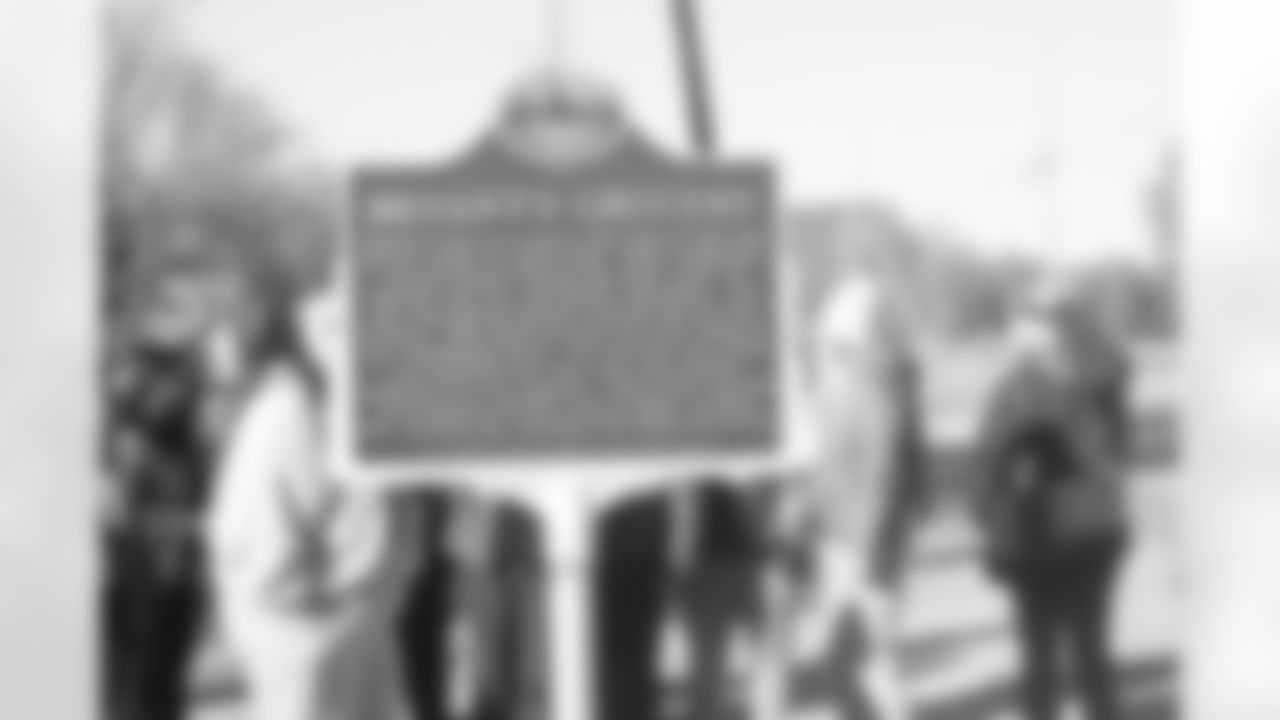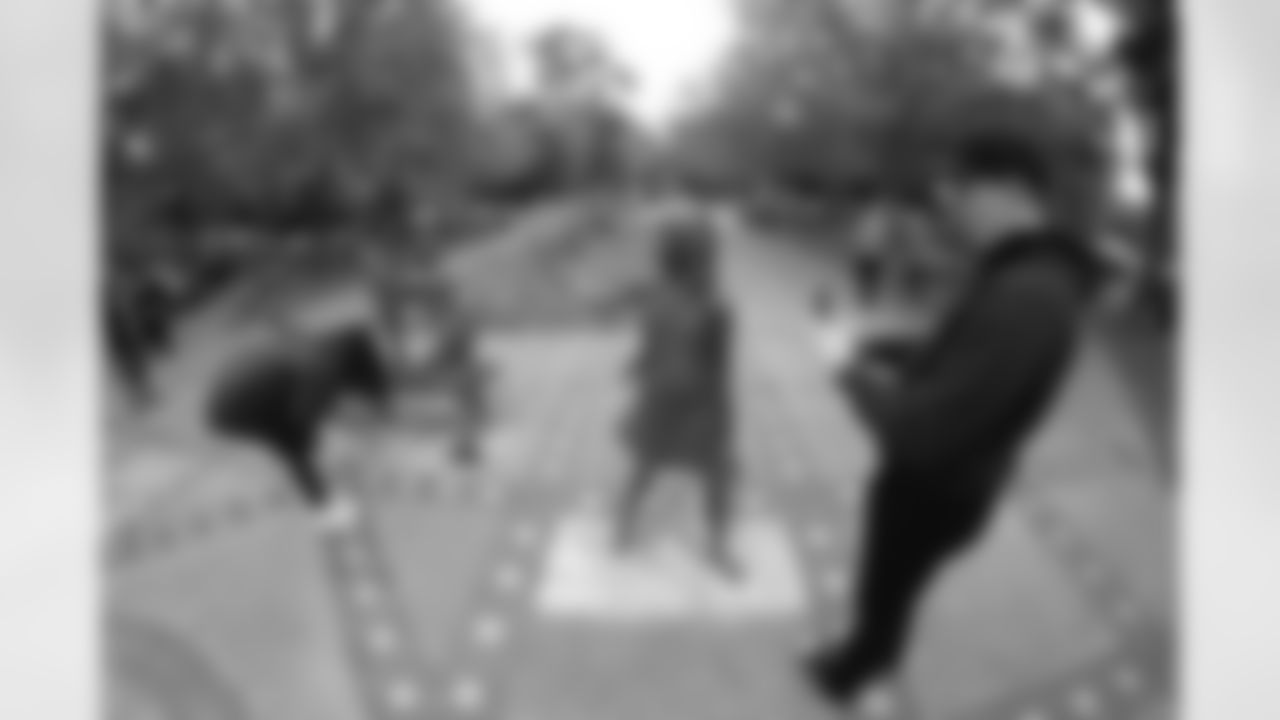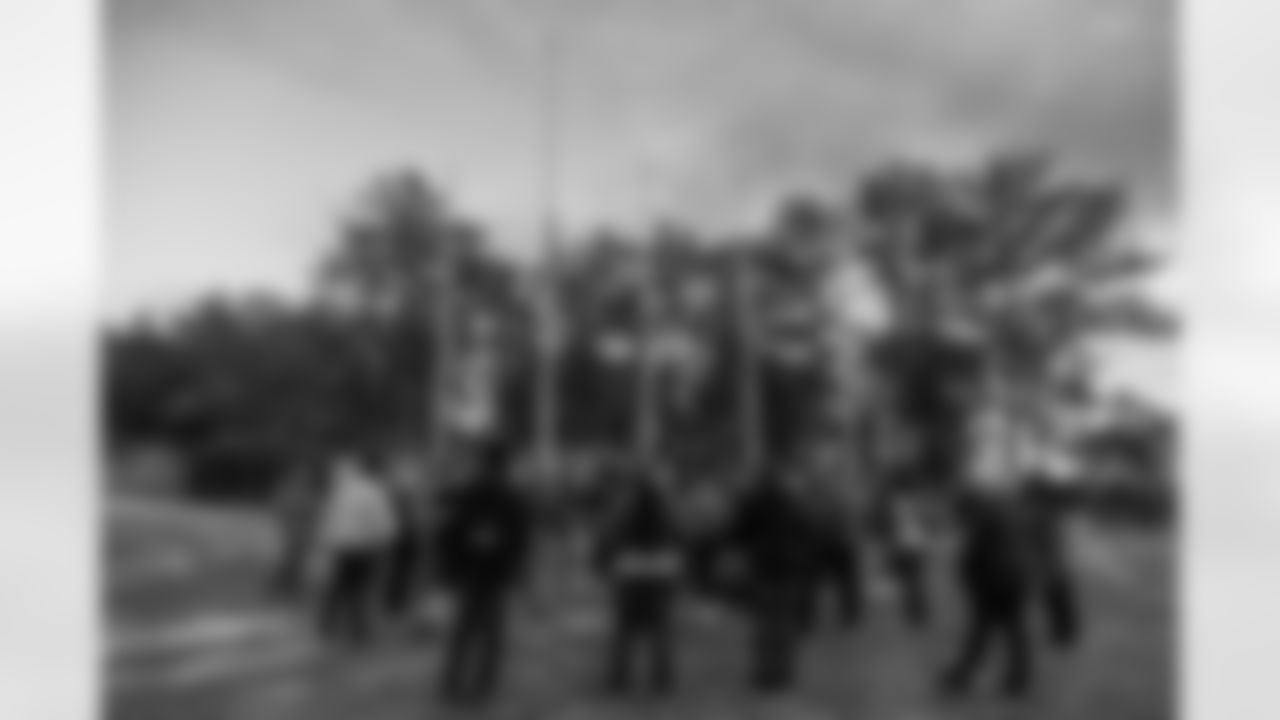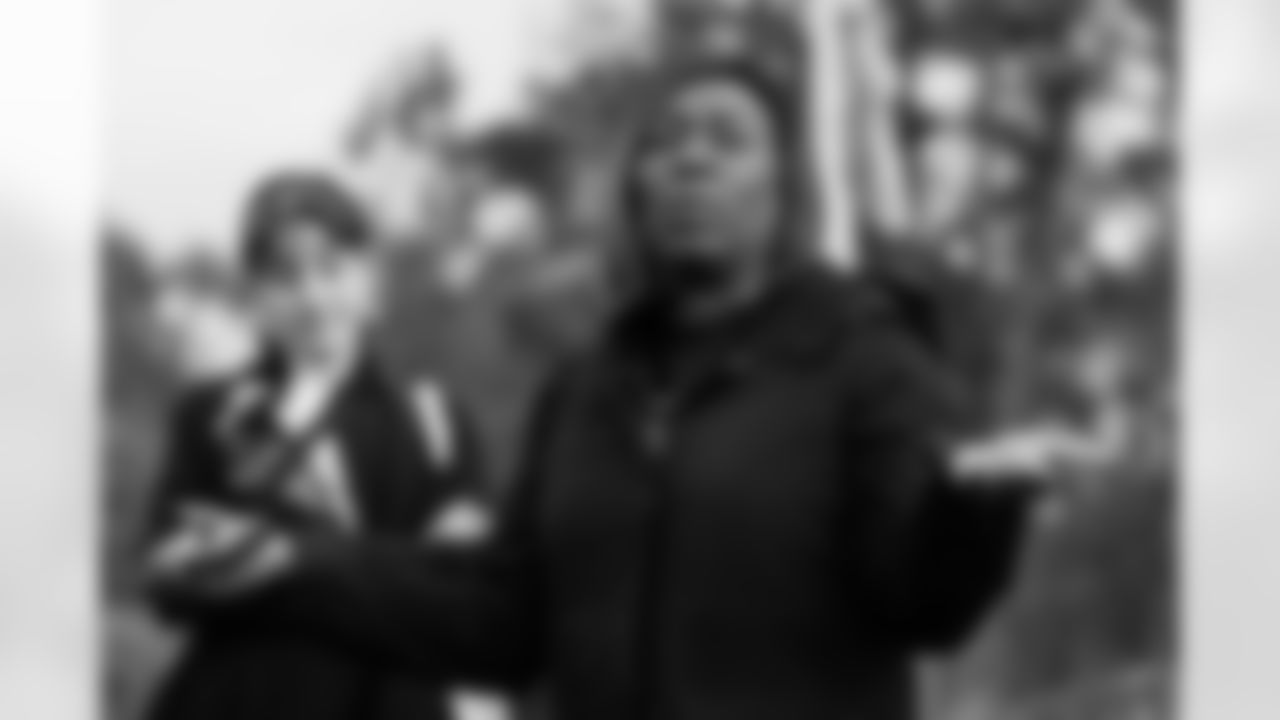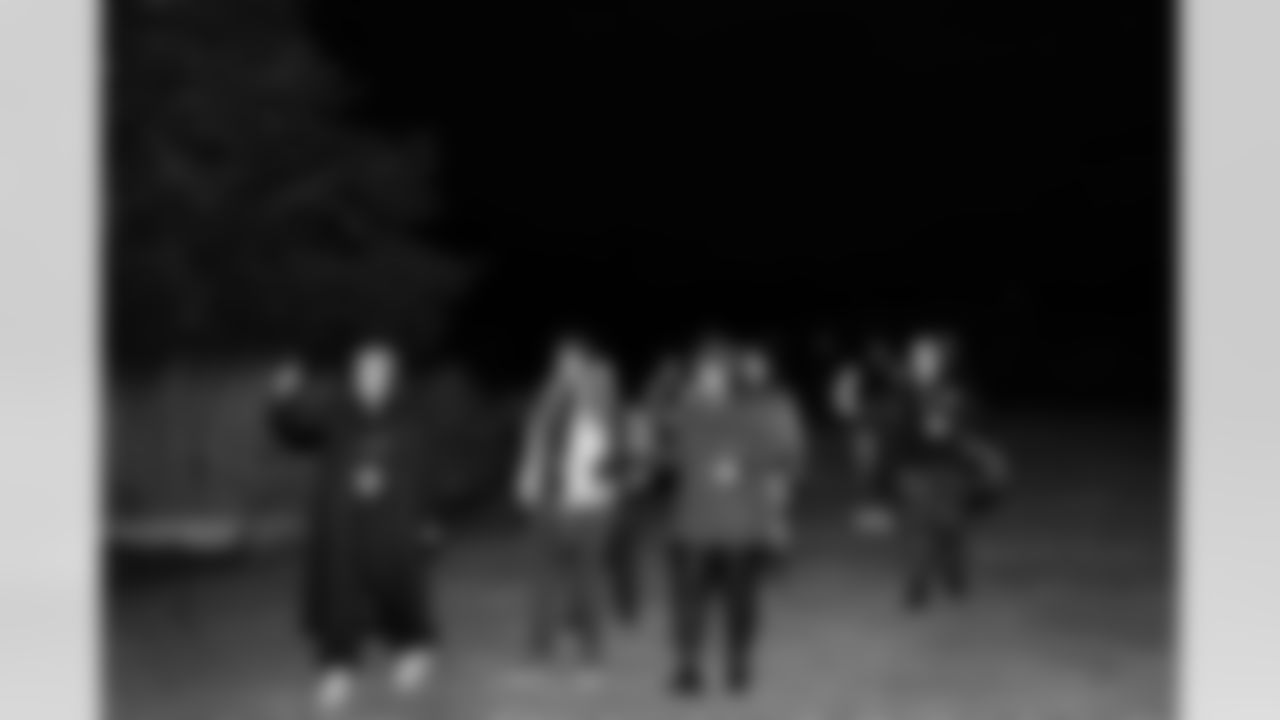In November, the Seahawks partnered with local non-profits Sankofa Impact and Choose 180 for a pilgrimage through the south through Black History in America.
After documenting the journey in writing, the Seahawks are honoring Black History Month and the organization's commitment to amplify and uplift the stories of Black voices with the release of a Pilgrimage To The South documentary, a 40-minute walk through the journey narrated by former Choose 180 Executive Director Sean Goode Jr.
The Sankofa Impact and Choose 180 teams gathered at the Virginia Mason Athletic Center on Tuesday evening for an early screening of the documentary, followed by a panel featuring several participants. For the group, it was a look back at the week-long trek, a journey that left a lasting impression on the Pacific-Northwest social activists. The experience was made possible in part thanks to Delta Air Lines, who donated flights for the trip.
There's plenty of literature available on Black History in America, but standing in the very spot at the now-defunct Bryant's Grocery in Money, Mississippi where Emmitt Till allegedly whistled at Carolyn Bryant on August 28, 1955 summoned feelings I'd never experienced. The documentary gives viewers the chance to experience what I often struggled to describe on paper. Led by Goode and Sankofa Impact leaders Felicia Ishino and Nathan Bean, the group of mixed racial, social and economic backgrounds seek to use history to find ways to make life better for people of color today and for the future. Seahawks Legends Ben Obomanu and Cliff Avril joined at significant stops along the way as they looked to find their own answers as black men looking to make a better future for their children.
"The people that you cheer for," said Avril. "The people that you love to wear their jerseys, the people that excite you on Sundays, Mondays and Thursdays are affected by this. It's deeper than just sacks, fumbles and touchdowns. All of us have experienced some sort of racism, some sort of issue in America in general. I think it's extremely important to support the people you love to watch. Why wouldn't you want to support the people that you love to watch? I think that's the biggest piece of it all is, understanding that everybody that has a jersey on is a person. Also realizing that those people have some interesting and different perspectives on a lot of things, so why wouldn't you want to dive deeper than some of the social issues that they have to deal with."
The Purdue alum and Jacksonville native joined the pilgrimage in Atlanta at Stone Mountain Park, where the group learned of the deep-rooted racial history behind the mountain's carving and Ku Klux Klan home base. Auburn University alum Ben Obomanu welcomed the team to his hometown of Selma, guiding a tour through the Civil Rights Historical Landmark town that he holds dear to his heart. As one of the many participants to give an account of the trip and explain their purpose, Obomanu breaks down the need to preserve his hometown's history while seeking ways to fund its future.
"Selma's a special place," said Obomanu. "You don't realize it until you get a little older, but growing up there I had a chance to grow up in a real-life museum so to speak. Everybody's connected to all the historical events that happened in Selma, the Civil Rights history that's there. We talk about the Edmund-Pettus Bridge, and every day we would ride across the Edmund-Pettus bridge, you sometimes lose sight of how important that moment was for Bloody Sunday. And the fight for civil rights and for equality and for voting rights in Selma. The older I got, the more and more I realized how important Selma was to a national movement. And how important these symbols and churches and maps and things we saw every single day actually saw such a historical role in where our society has come from and where it's trying to go."
With visits to foot soldiers, activists and pioneers in the social, economic and environmental justice fight for betterment, the group was faced with a range of emotions while visiting the landmarks etched in Black History. From passing out tissues on the coach bus after a tough emotional stop, to decompressing at a Memphis Grizzlies game after visiting the Lorraine Motel where Dr. Martin Luther King was assassinated, the group bonded to help each other answer the tough questions left with each stop. During a visit to the EJI Legacy Museum in Montgomery, Alabama, Choose 180 Program Coordinator Lamaria Pope discussed what she plans to take back to Seattle.
"Within the line of work that I can do I can take this back to my students and kind of give them more knowledge on our history," said Pope. "It's not just Black History, it's American History, it's history period."
The documentary serves as more than just another regurgitation of Black History, but a first-hand account of the impact of seeing how those events did and still do affect lives of color in the south and beyond. It's also a metaphor for those who may not have the opportunity or funds to take a pilgrimage through the deep south, but want to spark change in their communities. Eye-popping graphics and historical visuals of the events that shaped America today are intertwined with the thoughts of the bus-load of activists seeking to create a better future for Seattle youth and beyond. The ever-charismatic Goode sprinkles well-nuanced thoughts and historic tidbits throughout, giving perspective for each stop and how they added value to the trip. Goode also uses the trip to reflect on what issues he and many others face back home in Seattle and surrounding areas.
"History is everywhere," said Goode. "Right here in the Pacific-Northwest, there's a ton of history about historical harms that we can learn from. We interned people here because we were afraid of their ethnic background and assumed they would cause terror to our country because we were at war with Japan. In the state of Oregon, it was illegal to be black. You could not live in Oregon and be black, it was against the law. There is a reason why there's such a small percentage of black people that live in Oregon today. Until you feel the texture of a place, and you hear the tone and the voice of some of those that survived some of that trauma, and folks who are carrying that history forward as some of their ancestors survived that trauma, when you put your feet in that soil, there's something dynamically different about that experience. The challenge is not how do we just acknowledge the harm and say, 'Yeah that happened, and let's move on.' It's yeah that happened, we have to make repairs so that we can move on in an earnest and honest way."
Some learn more from visuals, and hopefully this documentary will help others find a relating point to help lead them to join the fight against all injustices and disparities against people of color. We may not always like our past or be able to rewrite it, but it's up to us to change our future.
Learn how you can make a difference with Sankofa Impact here, or donate to Choose 180 here.
Seahawks Legends, staff, and local non-profits working on social justice issues embarked on a trip to the South to explore Black history over the course of a week in November of 2022.

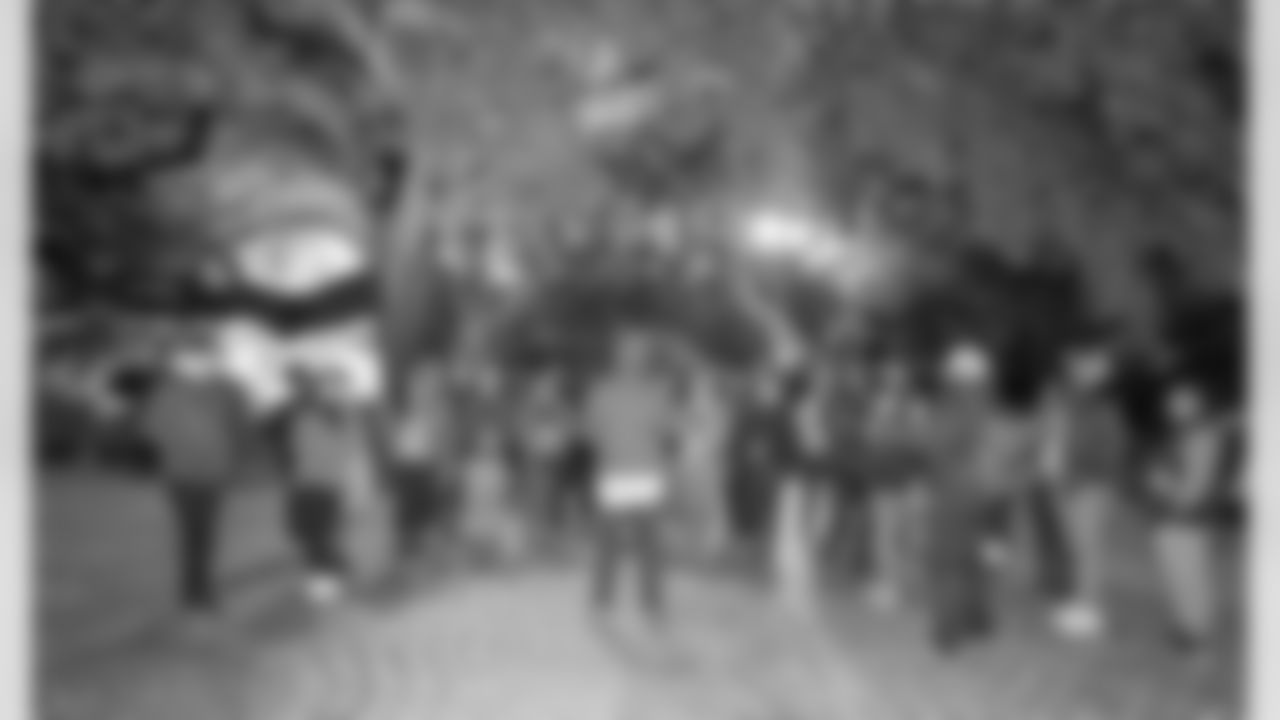
Black History Tour A group of about 30 members from Seattle area tour Lee Circle and other locations around New Orleans, LA to learn about Black history in the south, Tuesday, November 15, 2022. The tour was led by Michael "Quess" Moore, a poet, activist, and co-founder of 'Take Em Down NOLA', a coalition "dedicated to the removal of symbols of white supremacy in New Orleans" in the name of racial and socio-economic justice. Photo by Ted Jackson
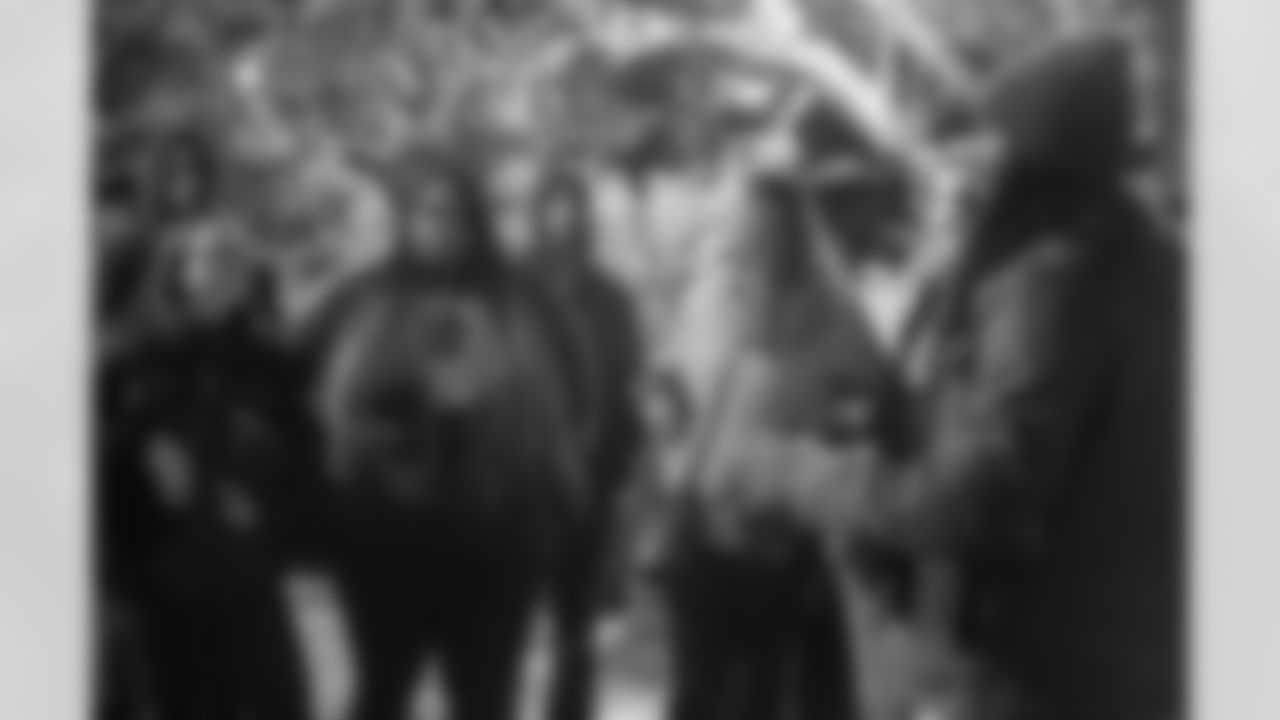
Black History Tour A group of about 30 members from Seattle area tour Lee Circle and other locations around New Orleans, LA to learn about Black history in the south, Tuesday, November 15, 2022. The tour was led by Michael "Quess" Moore, a poet, activist, and co-founder of 'Take Em Down NOLA', a coalition "dedicated to the removal of symbols of white supremacy in New Orleans" in the name of racial and socio-economic justice. Photo by Ted Jackson

Black History Tour A group of about 30 members from Seattle area tour Lee Circle and other locations around New Orleans, LA to learn about Black history in the south, Tuesday, November 15, 2022. The tour was led by Michael "Quess" Moore, a poet, activist, and co-founder of 'Take Em Down NOLA', a coalition "dedicated to the removal of symbols of white supremacy in New Orleans" in the name of racial and socio-economic justice. Photo by Ted Jackson

Black History Tour A group of about 30 members from Seattle area tour Lee Circle and other locations around New Orleans, LA to learn about Black history in the south, Tuesday, November 15, 2022. The tour was led by Michael "Quess" Moore, a poet, activist, and co-founder of 'Take Em Down NOLA', a coalition "dedicated to the removal of symbols of white supremacy in New Orleans" in the name of racial and socio-economic justice. Photo by Ted Jackson

Black History Tour A group of about 30 members from Seattle area tour Lee Circle and other locations around New Orleans, LA to learn about Black history in the south, Tuesday, November 15, 2022. The tour was led by Michael "Quess" Moore, a poet, activist, and co-founder of 'Take Em Down NOLA', a coalition "dedicated to the removal of symbols of white supremacy in New Orleans" in the name of racial and socio-economic justice. Photo by Ted Jackson

Black History Tour A group of about 30 members from Seattle area tour Lee Circle and other locations around New Orleans, LA to learn about Black history in the south, Tuesday, November 15, 2022. The tour was led by Michael "Quess" Moore, a poet, activist, and co-founder of 'Take Em Down NOLA', a coalition "dedicated to the removal of symbols of white supremacy in New Orleans" in the name of racial and socio-economic justice. Photo by Ted Jackson

Black History Tour A group of about 30 members from Seattle area tour Lee Circle and other locations around New Orleans, LA to learn about Black history in the south, Tuesday, November 15, 2022. The tour was led by Michael "Quess" Moore, a poet, activist, and co-founder of 'Take Em Down NOLA', a coalition "dedicated to the removal of symbols of white supremacy in New Orleans" in the name of racial and socio-economic justice. Photo by Ted Jackson

Black History Tour A group of about 30 members from Seattle area tour Lee Circle and other locations around New Orleans, LA to learn about Black history in the south, Tuesday, November 15, 2022. The tour was led by Michael ìQuessî Moore, a poet, activist, and co-founder of ëTake Em Down NOLAí, a coalition ìdedicated to the removal of symbols of white supremacy in New Orleansî in the name of racial and socio-economic justice. Photo by Ted Jackson

Black History Tour A group of about 30 members from the Seattle area tour Whitney Plantation in Edgard, LA to learn about Black history in the south, Wednesday, November 16, 2022. The tour was led by Dr. Ibrahima Seck, Director of Research at Whitney Plantation. Photo by Ted Jackson

Black History Tour A group of about 30 members from the Seattle area tour Whitney Plantation in Edgard, LA to learn about Black history in the south, Wednesday, November 16, 2022. The tour was led by Dr. Ibrahima Seck, Director of Research at Whitney Plantation. Photo by Ted Jackson
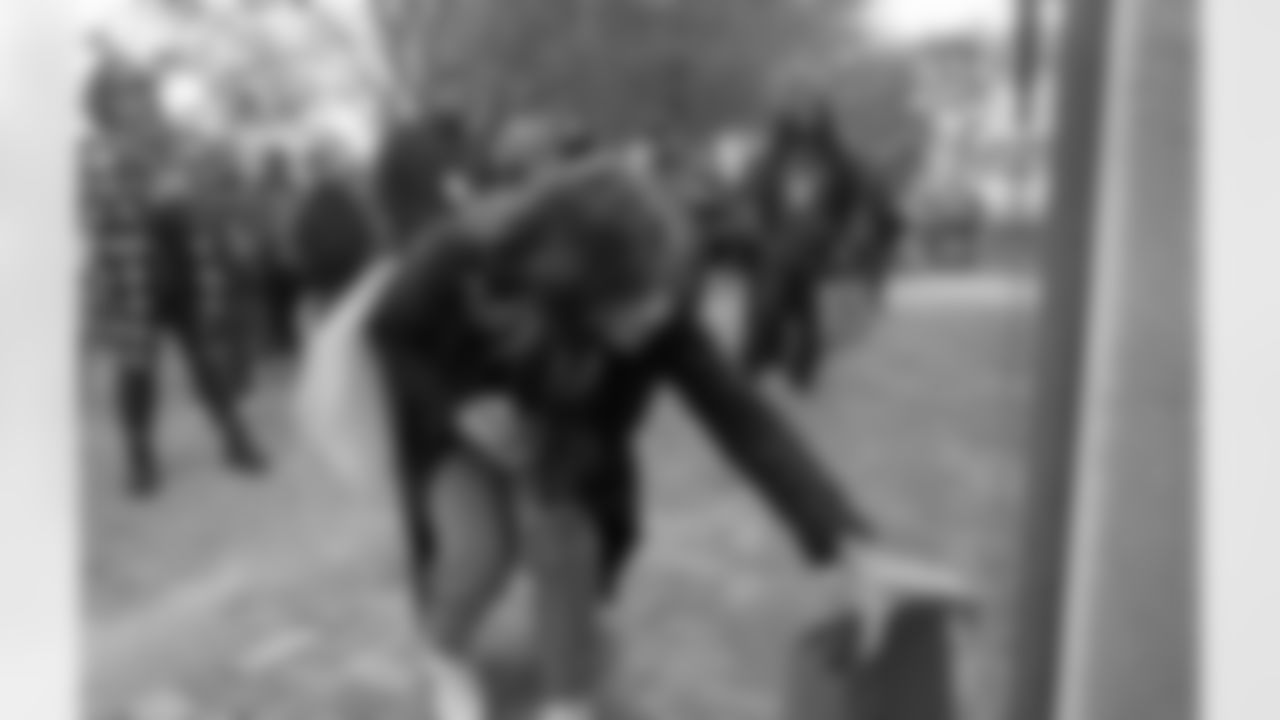
Black History Tour A group of about 30 members from the Seattle area tour Whitney Plantation in Edgard, LA to learn about Black history in the south, Wednesday, November 16, 2022. The tour was led by Dr. Ibrahima Seck, Director of Research at Whitney Plantation. Photo by Ted Jackson

Black History Tour A group of about 30 members from the Seattle area tour Whitney Plantation in Edgard, LA to learn about Black history in the south, Wednesday, November 16, 2022. The tour was led by Dr. Ibrahima Seck, Director of Research at Whitney Plantation. Photo by Ted Jackson
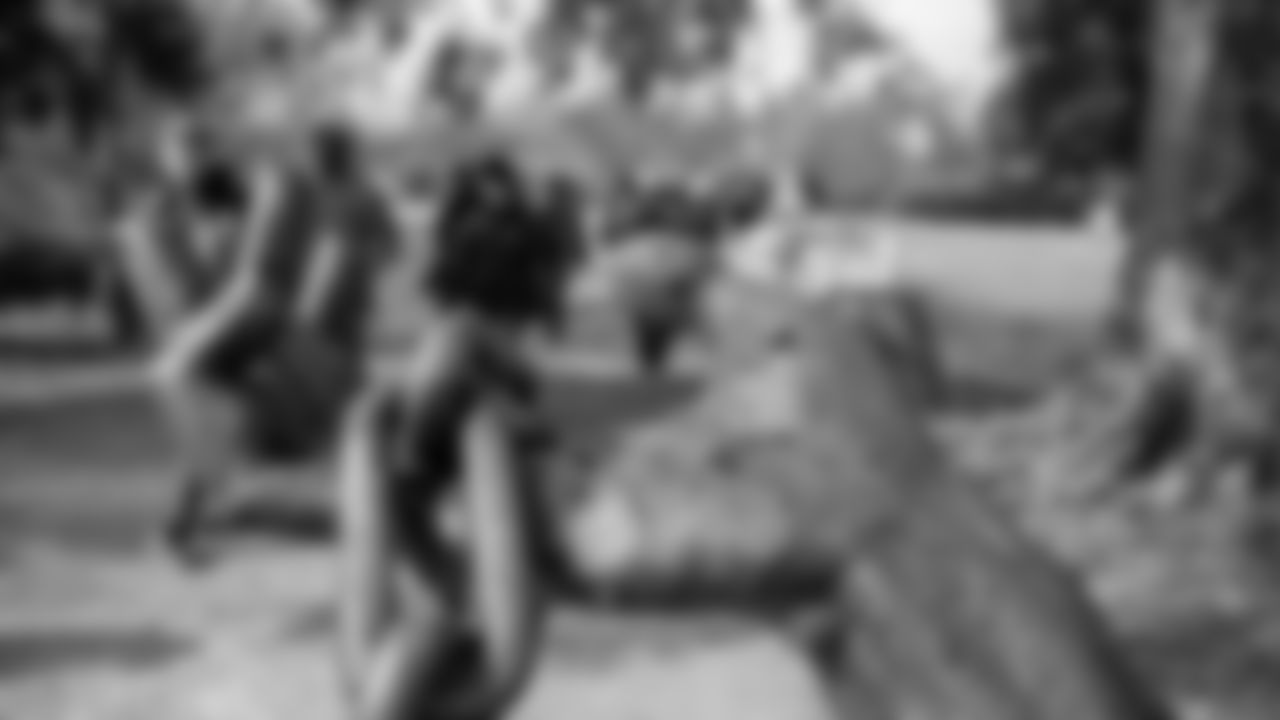
A group of about 30 members from the Seattle area tour Whitney Plantation in Edgard, LA to learn about Black history in the south, Wednesday, November 16, 2022. The tour was led by Dr. Ibrahima Seck, Director of Research at Whitney Plantation.

Black History Tour A group of about 30 members from the Seattle area tour Whitney Plantation in Edgard, LA to learn about Black history in the south, Wednesday, November 16, 2022. The tour was led by Dr. Ibrahima Seck, Director of Research at Whitney Plantation. Photo by Ted Jackson
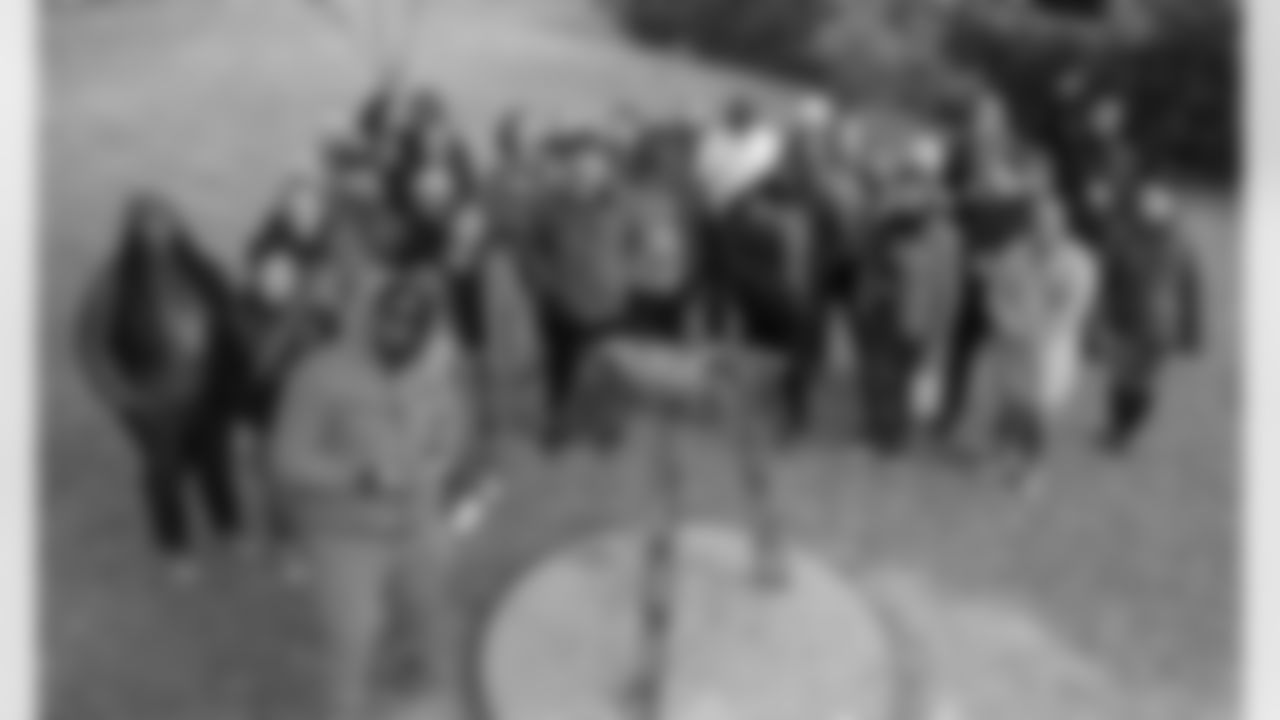
Black History Tour A group of about 30 members from the Seattle area tour Whitney Plantation in Edgard, LA to learn about Black history in the south, Wednesday, November 16, 2022. The tour was led by Dr. Ibrahima Seck, Director of Research at Whitney Plantation. Photo by Ted Jackson
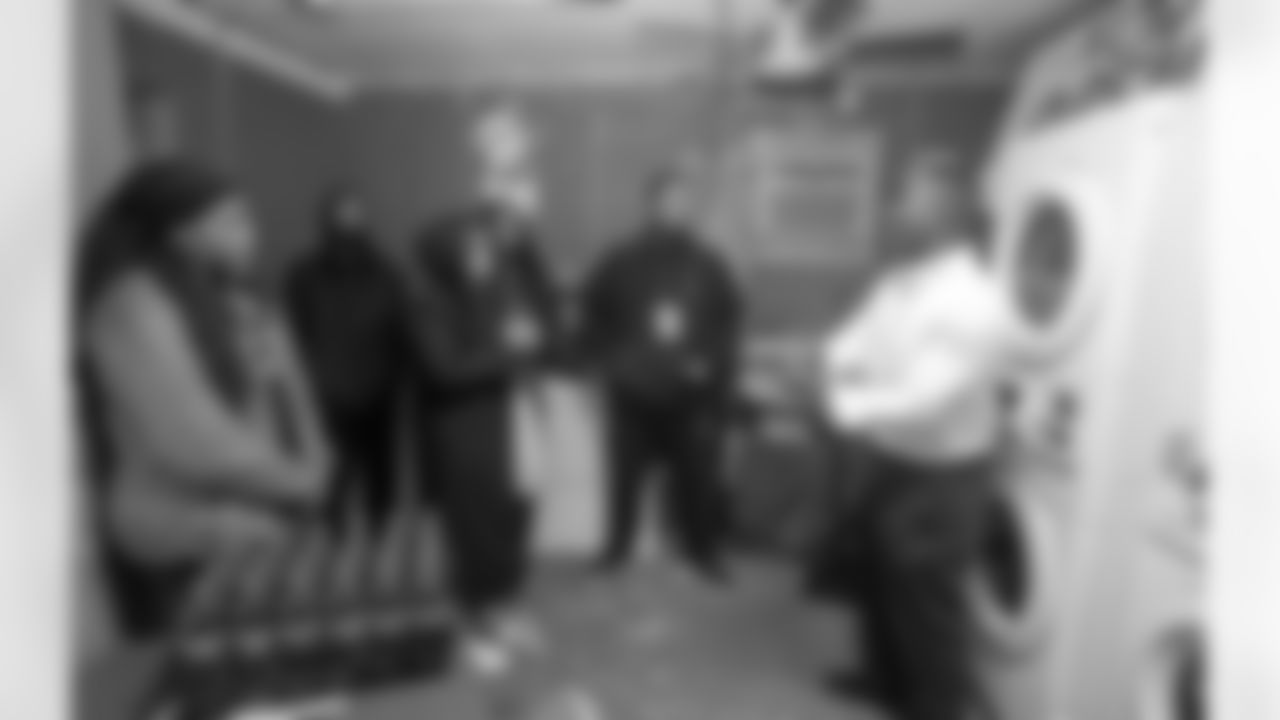
Black History Tour A group of about 30 members from the Seattle area tour New Orleans lower 9th ward with Bernell Colton to learn about Black history in the south, Wednesday, November 16, 2022. Photo by Ted Jackson

Black History Tour A group of about 30 members from the Seattle area tour StudioBe, a New Orleans arts and cultural destination, Wednesday, November 16, 2022. Photo by Ted Jackson
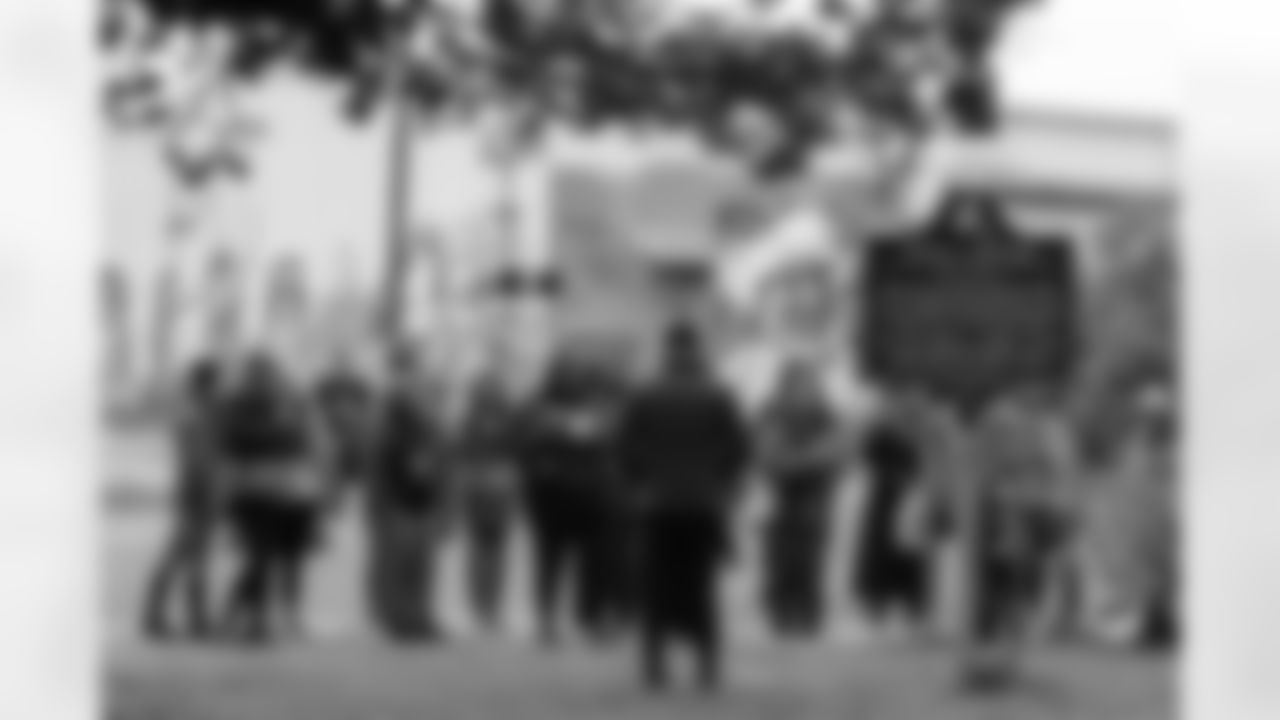
Black History Tour A group of about 30 members from the Seattle area tour StudioBe, a New Orleans arts and cultural destination, Wednesday, November 16, 2022. Photo by Ted Jackson

Black History Tour A group of about 30 members from the Seattle area tour StudioBe, a New Orleans arts and cultural destination, Wednesday, November 16, 2022. Photo by Ted Jackson
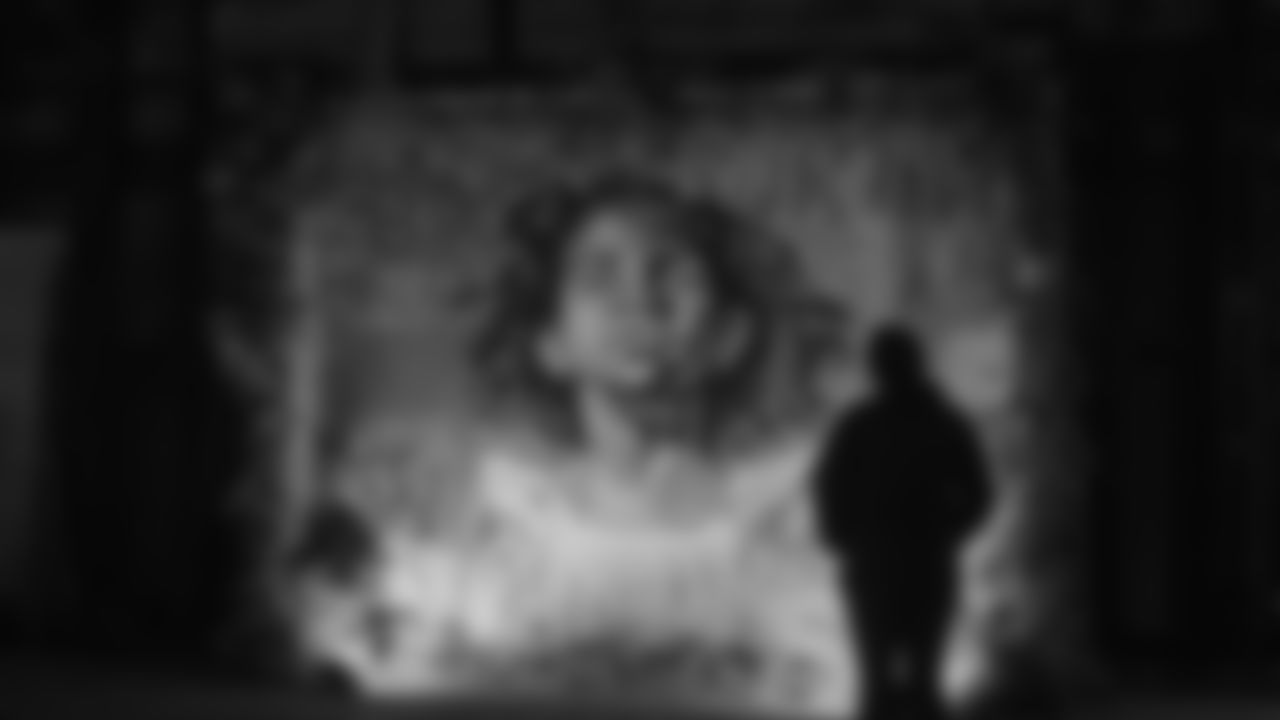
Black History Tour A group of about 30 members from the Seattle area tour StudioBe, a New Orleans arts and cultural destination, Wednesday, November 16, 2022. Photo by Ted Jackson


